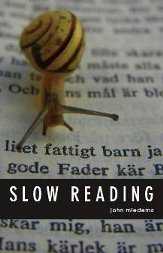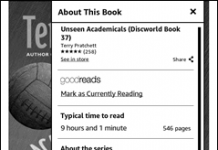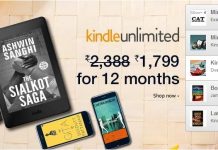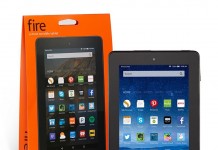 I have read about 2500 books. Print books. I have only read 2.5 ebooks on my new Kindle. In this fourth post in my Kindle shakedown series, I consider the Kindle book reading experience. Given my history with print it is not surprising that I maintain a preference for it, but I enjoy reading on the Kindle more than I expected.
I have read about 2500 books. Print books. I have only read 2.5 ebooks on my new Kindle. In this fourth post in my Kindle shakedown series, I consider the Kindle book reading experience. Given my history with print it is not surprising that I maintain a preference for it, but I enjoy reading on the Kindle more than I expected.
A primary reason for getting an ereader was my interest in reading the work of indie writers publishing via ebooks. Like many others, writer Cliff Burns was frustrated with the traditional publishing establishment and distributed his novel, So Dark the Night, full-length on the web. I was unwilling to read a 449 page PDF on my laptop. Reluctantly, I printed it, two pages to a side, two-sided. It was the first time I thought about getting an ereader. When I finally got a Kindle last Christmas, the first book I looked at was Burn’s PDF. It looked better when I used the Kindle’s screen rotation to view it horizontally.
I had planned to buy the print version of Doctorow’s Makers, but once I had the Kindle I took advantage of the ebook download he distributes for free for publicity. I did not finish this selection but I do not attribute it to the ereader. The premise of the story was good, the writing was fine, but I am inclined to leave books that do not hook me by the hundredth page. The same thing could have happened with a print book. I have since read two more ebooks with greater satisfaction. For the most part, I felt like I was reading a book, only a bit slower. I suspect my base reading skills are being rewired just slightly, like the experience of seeing through a new pair of glasses. Sometimes I scan pages when I read, but on the Kindle I was forced to click ahead one page at a time, and could not easily jump back and forth over multiple pages. I would hate to cram a textbook this way. I prefer page numbers but can live with the Kindle’s “locations”. I considered that book covers are less prominent on an ebook, a loss rather like cover art on LPs.
In my book, Slow Reading, I asserted that ebooks are only metadata for print books. Computers are superior for finding information and acceptable for reading snippets, but the print book is still the superior technology for reading anything of length or substance. After reading on the Kindle, I also read a print book and again found it a richer reading experience, but only marginally. In the future, I will make a point of distinguishing ebooks from ereaders. The Kindle and its competitors are not interesting because they mix digital technology with book content, i.e., ebooks; the computer did that. Ereaders are compelling because they merge digital technology with an acceptable physical interface for long-form reading. The Kindle is not the final form of the ereader but it is a worthy step in that direction.
Editor’s Note: This article, the fourth in a series, is reprinted, with permission, from John Miedema’s blog. John is a graduate of the Master of Library and Information Science program at the University of Western Ontario. In October, he presented at the Library of Congress on his recently published book, Slow Reading. He also developed open source software which links bibliographic data from Open Library to web pages and library catalogues. Articles on the software were published in Information Standards Quarterly and the Code4Lib journal. PB

































There are a number of writers (including yours truly) watching the growth of the e-Reader market with great interest. The notion of by-passing editors and agents and reaching readers directly is just too enticing to give up. I offer nearly 300,000 words of prose for free perusing and downloading on my site and, thanks to web readers and fan(atics) from around the world, I’ve been thrilled with the number of folks coming by.
And as long as there are intelligent, literate people like John Miedema out there, reading (and writing), demonstrating their devotion to the printed word, I’ll keep putting pen to paper.
Write on, John…